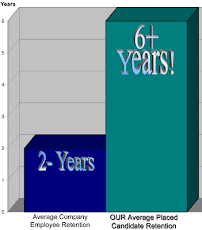By SARAH E. NEEDLEMAN
The higher you rise along the corporate ladder, the more attractive you're likely to become to executive recruiters. But even if they contact you first, your odds of getting a job as a result can flounder if you don't understand how the search business works. For example, some up-and-coming corporate leaders withhold critical information, such as their current salary, due to privacy concerns. Yet recruiters work on a confidential basis, asserts Wes Richards, a senior client partner and managing director at Korn/Ferry International Inc. "We're like your doctor, your priest or your lawyer," he says. To avoid being labeled a greenhorn, see these tips for forging and managing strong relationships with recruiters.
Your First 90 Days
Be sure. Offer yourself as a candidate to recruiters only if you're serious about wanting to change jobs, warns Daniel Cahill, president of Hobson Associates Inc., a boutique search firm in Cheshire, Conn. "Don't call a headhunter because you had a bad day, you're bored or mad," he says. Carefully assess your situation first, because if you turn down a recruiter's interview offer, chances are he or she "won't work with you again," he says.
Be specific. Let recruiters know if you'll only work in a certain area, geographically or industry-wise, and keep in mind that the thinner your search parameters, the fewer your options, says Mr. Cahill. Also, avoid saying you'll move anywhere for a job if you don't really mean it. "Anytime you renege on an opportunity or change your mind, you create a problem," he warns.
Provide references. Include three names—and their contact information—when you send recruiters your resume, says Mr. Cahill. These can be former bosses, colleagues or people you managed. The effort will help bolster a recruiter's desire to represent you to his or her clients, he says.
Ask smart questions. If a recruiter approaches you about a career opportunity, show you're job-search savvy by inquiring about the size of the employer, its culture, the competencies needed for the position and whether you're the first candidate to be considered, advises Mr. Richards. Also request a copy of the job's specifications. "The recruiter will say this is somebody who understands the bigger picture and is digging in deep to understand what the job is all about," he explains.
Explain rejections. For jobs that aren't a good match, let recruiters know why, says Mr. Richards. This will allow them to clear up any false impressions you might have or gain a better understanding of what you prefer. It also may prompt the search professional to add you to his or her tickler file for consideration down the road. Mr. Richards says about three-quarters of the candidates he places are people he'd previously tried to place. Meanwhile, if possible, recommend someone else for the jobs you turn down. "Headhunters are quid pro quo people," says Mr. Cahill. "They keep score."
Stay involved. Check in with recruiters about once every two weeks to stay on their radar, unless you have something to report, such as feedback on an interview you completed or any progress you made your own. "A headhunter doesn't want to be embarrassed calling a company you already have an interview with," says Mr. Cahill. Act as your recruiter's assistant by researching companies and offering a list of ones you consider a strong fit. "Those are the people I work hardest for," he says.
Suggest moving on. If a recruiter hasn't secured you any substantial interview invites after 90 days, ask for a reference to another search professional in your niche, advises Mr. Cahill. The request might motivate the recruiter to try harder. "Headhunters are competitive," he says.














1 comment:
A lot of great suggestions for anyone looking to work with a professional recruiter. Making "friends" with these individuals will always be in you best interest whenever you decide you may need a career change.
-Tim
Post a Comment